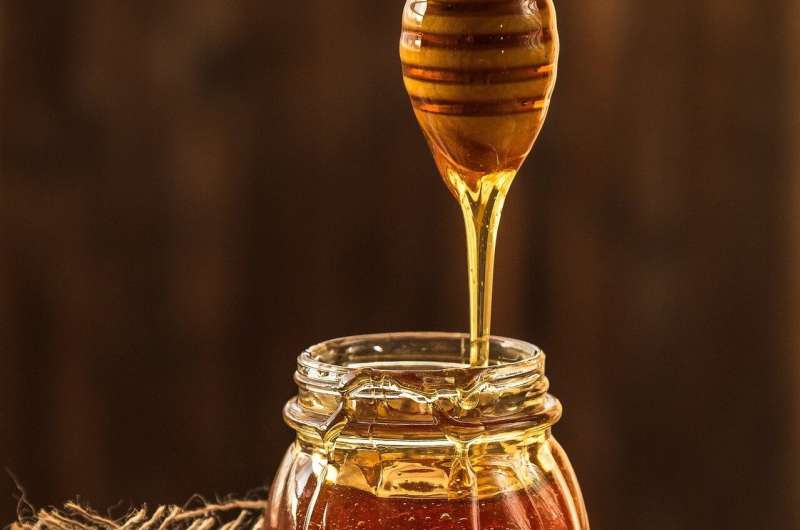Weekend Research Finds: Surprising Advantages of Hearing Aids, Impaired Exercising, and Honey Production

January 6, 2024 report
In compliance with Science X's editorial process and guidelines, this article has received meticulous review. The contents have been thoroughly fact-checked, validated by trustworthy sources, and carefully proofread ensuring content reliability. The following features have been emphasized:
- Fact-checked
- Trusted source
- Proof-read
Authored by Chris Packham from Phys.org
Welcome to 2024! One might wonder what happened to the advanced power loom that was projected by natural philosophers. Surprisingly, Edmund Cartwright had already crafted one way back in 1785, and it was a significant breakthrough in industrial weaving. It appears the hiatus since the previous Saturday post caused one to lose sight of scientific advancements. Let's take a look at some noteworthy research stories that are kick-starting the year.
The scientific community has found certain additional advantages, unrelated to hearing, for older adults with hearing impairment who wear hearing aids. One such finding includes a noticeable decrease in the risk of developing dementia in old age.
According to findings from researchers at the University of Southern California, the usage of hearing aids by individuals with hearing deficiencies can reduce their overall mortality risk by 24%. The research involved the examination of audiometry evaluation data and hearing aid use information of 10,000 adults derived from the National Health and Nutrition Examination Survey.
'The adults with hearing loss that periodically utilized hearing aids exhibited a 24% lesser mortality risk, as compared to their counterparts who refrained from using them', reported Dr. Janet Choi, the head researcher of the study. 'These implications are intriguing as they point towards a possible protective role of hearing aids contributing to better health and preventing premature mortality.'
Research has shown a steady decline in U.S. honey yield since the 1990s, and investigators are trying to ascertain the influences behind this trend. Researchers from the Pennsylvania State University have analyzed copious data from various government departments pertaining to all fifty states over a timespan of 50 years. The decrease in honey yield, they discovered, is proportionate to herbicide application and land use regulations that lack pollinator facilities.
They also observed that states with a mix of hotter and cooler regions had higher honey production, and local soil fertility surprisingly played a meaningful role in predicting honey yield. 'The insights we gained from this study will be instrumental for beekeepers in forecasting honey yield, agriculturists in comprehending pollination services, and land managers in supporting plant and pollinator ecosystems and services' said Gabriela Quinlan, the leading author of the study.
Contrary to the common anecdotal beliefs of marijuana users, a study conducted by the University of Colorado at Boulder has found that cannabis does not contribute to enhancing exercise performance. The study included an assessment of 42 runners who were given either THC or non-psychoactive CBD.
Though all participants reportedly had an increase in enjoyment, motivation, and a more intense 'runner's high', the runners in the THC group found their usual running intensity far more challenging when under the influence of cannabis, likely due to the THC causing an elevated heart rate. 'Our research quite unequivocally shows that cannabis is not a performance-enhancing drug,' stated Angela Bryan, a Psychology and Neuroscience professor.
In an exciting revelation, fossils previously identified as juvenile tyrannosaurs have now been reclassified as adults of a smaller species, Nanotyrannus lancensis. According to a collaborative study between the University of Maryland and the National Institutes of Health, urine's yellow color is attributed to a hitherto unknown microbial enzyme termed bilirubin reductase.
A study led by the University of Queensland disclosed that human beings can decipher the emotional state of chickens by the sound of their clucks.
© 2024 Science X Network




